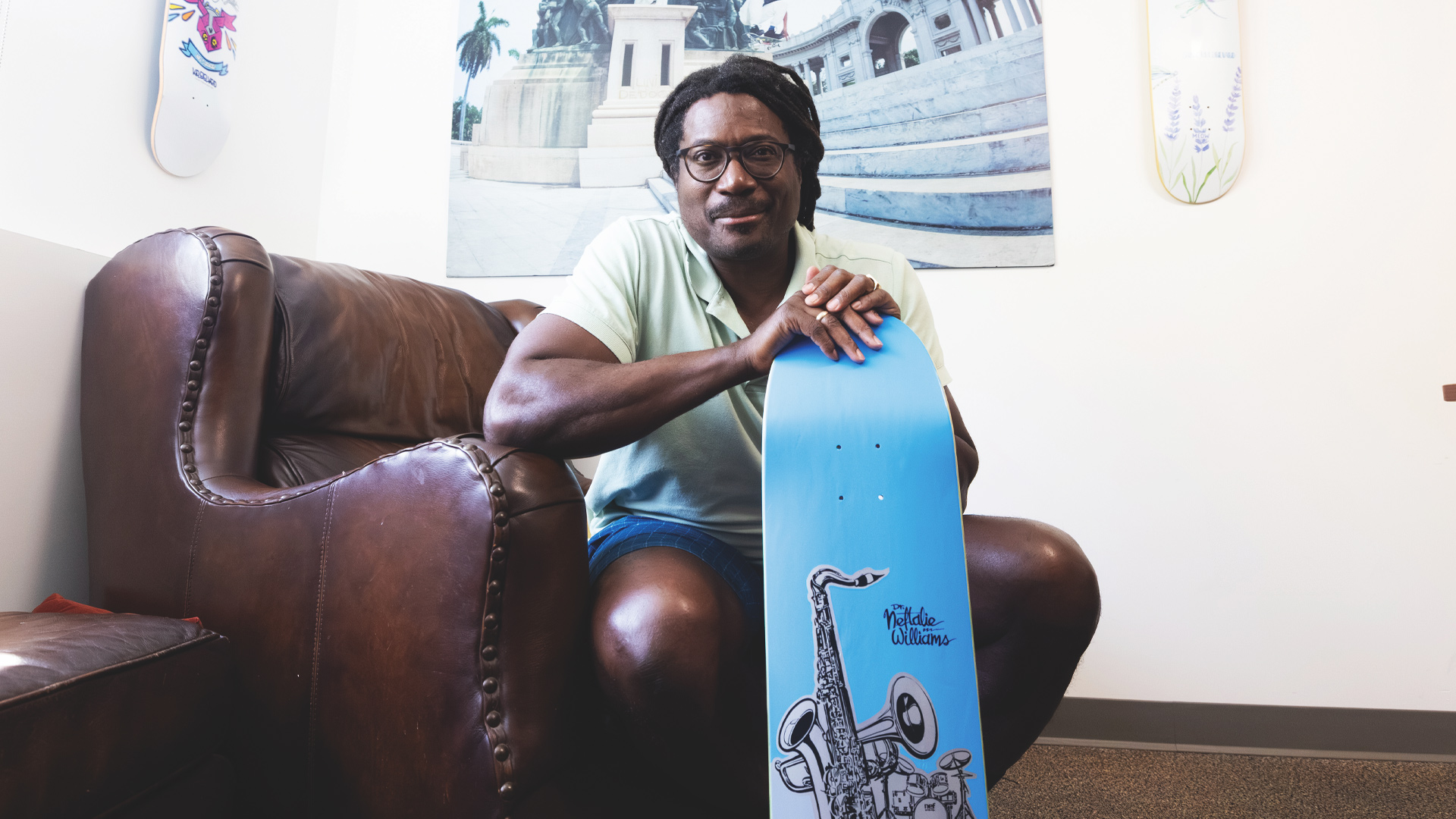Ask a Researcher: Neftalie Williams

Skateboarder, scholar and cultural diplomat Neftalie Williams connects students to global communities through research, action sports and the pursuit of inclusion and social change.
By Leslie L.J. Reilly
WHEN NEFTALIE WILLIAMS wears his polo shirt emblazoned with the logo for the Center for Skateboarding, Action Sports, and Social Change, he invariably gets a lot of questions. Most people are in awe that San Diego State University offers academic research opportunities related to skateboarding. Through his work, Williams is connecting research with local and international communities and giving students experiential learning opportunities not found at other universities.
Q: How would you describe your research?
The focus is to build a more inclusive society by figuring out the issues we face and how we can take what we learn from skateboarding culture—a global community that supports each other—and apply that to other areas of our life. It can be the university, cultural institutions or any way in which what we know about being a global family can be applied to new situations.
Q: How does this research impact students?
We’re developing the space and the strategies for students to see how the thing that they love can be incorporated into the global community and their academic and local communities. We want students to say for themselves that research matters. We also want students to know how to find meaningful work. Sometimes that work can be doing research to help communities that mean the most to you. We’re also totally dialed into the action sports industry, helping students get internships or landing jobs.
Q: How are students taking action in the community?
This fall, the SDSU Skate Club and 25 students from the Residential Learning Community’s Skateboarding and Social Change group will work on building skateable sculptures on campus. We want students to see how their designs can impact their local community and how they’re part of a larger effort toward sustainability. Working with our global partners—Malmö University, Sweden, and the city of Bordeaux, France—our students will understand that they’re part of a larger ecosystem that isn’t just SDSU. They’re also part of a world that thinks about creating change through skateboarding and taking action.
Q: How do you bring your expertise to the classroom and community?
I bring a particular expertise in skateboarding’s role as a tool for cultural diplomacy. Having been an ambassador and envoy for skateboarding with the U.S. Department of State working around the world, I’ve seen how power works and how sport can bring people together through a specific focus on skateboarding and action sports. My role is helping students to understand that they can represent their communities and do great work bringing all of their identities and experiences with them. When they bring their full selves, they can also represent the U.S. and help us have a better relationship with other nations.
